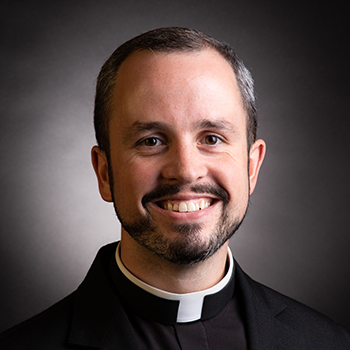DEAR FATHER | Peter’s denial, then love, can guide us through shame
Sometimes I hate myself for the sins that I’ve committed. How can I be freed from shame and self-hatred?

Good little Catholic girls and boys are often taught not to trouble others; evidently, it’s impolite. But what are we to make of the suffering that Jesus endures for us on the Cross? It seems that we have profoundly troubled our Lord. Ought we be ashamed of ourselves for our sins?
There is a simple difference between healthy and unhealthy shame. Healthy shame is directed at regrettable actions (sins), whereas unhealthy shame is a global evaluation of our very selves. The thief has a healthy sense of shame when he regrets his thievery. He has an unhealthy shame when he deduces that he must be worthless due to his sin.
This is luminously displayed in St. Peter’s relationship with our Lord Jesus. On the night of His arrest, Jesus hears Peter deny Him three times around a small fire. Luke’s account of this scene hauntingly describes how Jesus turns to look at Peter after his third denial (Luke 22:61). One might imagine the immense shame that arose in Peter’s heart, broken again by acting from his brokenness. How the sorrows must have compounded as the dreadful day of his friend’s crucifixion came to such a dark and gruesome close! If you feel shame, many saints understand. Peter is not least among them.
Yet, just a little while later, Peter finds himself — fireside again — with Jesus nearby once more. Things are different this time. Instead of a threefold denial, there is a threefold confession of love.
“Peter, do you love me?”
“Lord, you know everything. You know that I love You,” (John 21:15-17).
By that third confession of his love, Peter must undoubtedly have known what the Lord was doing. By his third “I love you,” Peter must’ve been recalling his threefold cowardice — his shame. I imagine this might have been a tearful scene; the tears seem a blessed conflagration of sorrow and joy, pain and relief. Perhaps before this moment, Peter would have told you that he would have avoided all discussion of his failure had he been given a choice. Thank God that He presses into our shame-filled avoidance, sometimes whether we like it or not.
Jesus hates sin because He is a lover, and a lover only hates whatever divides Him from His beloved. In the light of Divine Charity, two things come into full view:
1.) The full horror of our sin, which keeps us from God.
2.) How good and loveable we are even when we’ve failed.
The voice of self-condemning shame cannot be the voice of Jesus, because He is a lover. He does not command us to hate what He loves. Jesus loves Peter, and He relentlessly pursues him with His mercy amid Peter’s weakness. So, to “hate the sin and not the sinner” applies as much to ourselves as it does to others.
Father Conor Sullivan is currently in residence at Immacolata Parish as he works for the Archdiocese of St. Louis, the Vocations Office and Kenrick-Glennon Seminary as a provisionally licensed psychologist.
Good little Catholic girls and boys are often taught not to trouble others; evidently, it’s impolite. But what are we to make of the suffering that Jesus endures for us … DEAR FATHER | Peter’s denial, then love, can guide us through shame
Subscribe to Read All St. Louis Review Stories
All readers receive 5 stories to read free per month. After that, readers will need to be logged in.
If you are currently receive the St. Louis Review at your home or office, please send your name and address (and subscriber id if you know it) to subscriptions@stlouisreview.com to get your login information.
If you are not currently a subscriber to the St. Louis Review, please contact subscriptions@stlouisreview.com for information on how to subscribe.



